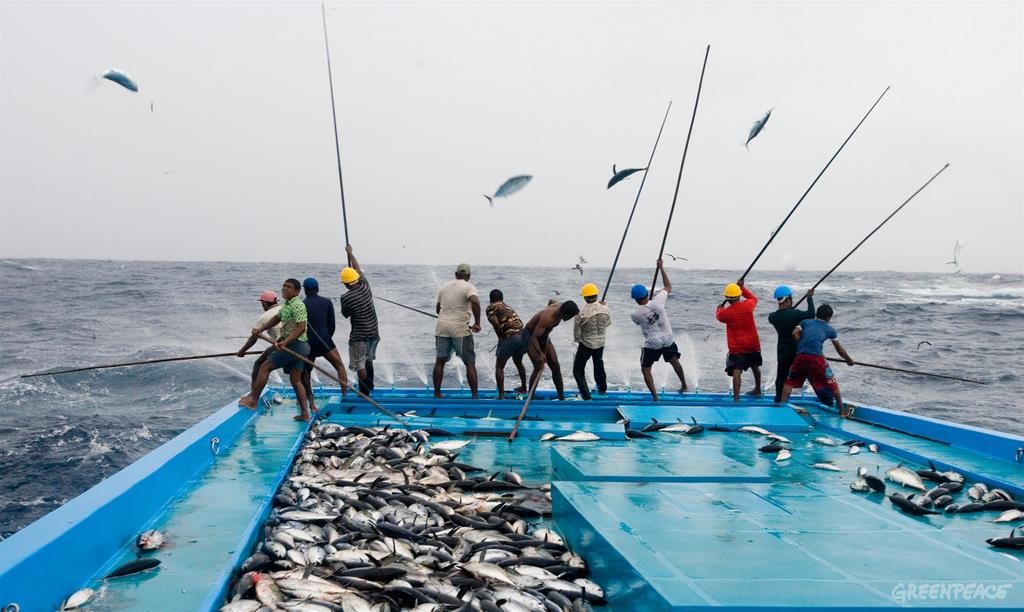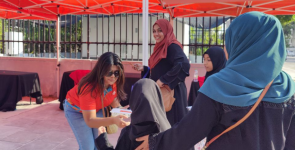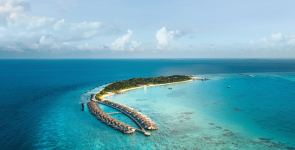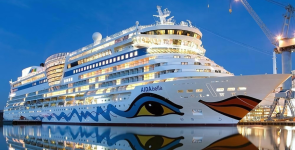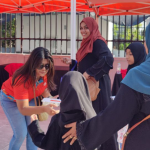Surrounded by the great blue ocean, Maldives has always been a country dependent on fishing for our survival. Be it as an occupation or be it in our food – fishing has been a vital part of our lives from as early on as we can remember. Prior to the inception of tourism, fishing was the main occupation in the Maldives. It was a way of life for our ancestors. The men in the family would go out on fishing expeditions and bring home their catch for the day, which would be skinned, gutted and cooked. As it was not done on a commercial scale back in the day, restrictions were not imposed. However, with the government’s decision to mechanize fishing vessels in 1974, roads were paved to develop the industry and to bring in commerce to the country by exporting the fish. The total number of catch in 1970 was 37,273 tones, which has increased staggeringly to tones in 2017. However, the fishing industry of Maldives has been declining in the past few years.
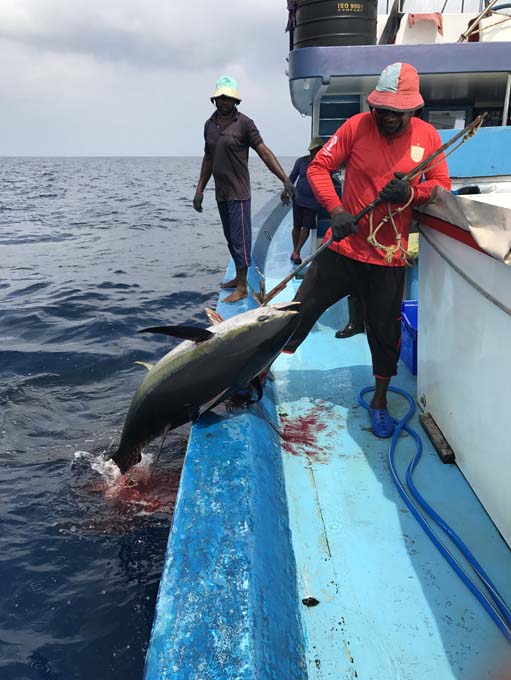
Although the traditional fishing method of pole and line remained relatively unchanged, steady improvements in efficiency and size of the vessels enabled the fishermen to venture further fishing. Tuna catches have also increased due to modernization, producing record catches of over 100,000 tons in 2006. However, the number of catch has declined to around 85,000 tons in the recent years.
In 2005, the total catch of fish was 186,000 metric tons, whereas the figure has drastically dropped to 127,000 by the end of 2015. In 2011, it was noted that the decline in skipjack tuna was due to the operation of purse seiners, whom were using Fish Aggregating Devices (FAD) along the Maldivian EEZ. Purse seining is a fishing method whereby a vessel deploys an enormous net to encircle and capture entire schools of fish at once. Using FADs attracts not only predators, but also scavengers. As the method generates a large amount of bycatch, it is illegal in the island nation. A 2-year study which was finished in 2017 identified 432 vessels performing unauthorized activities inside the Maldivian EEZ. International bodies were alerted and notified about this violation.
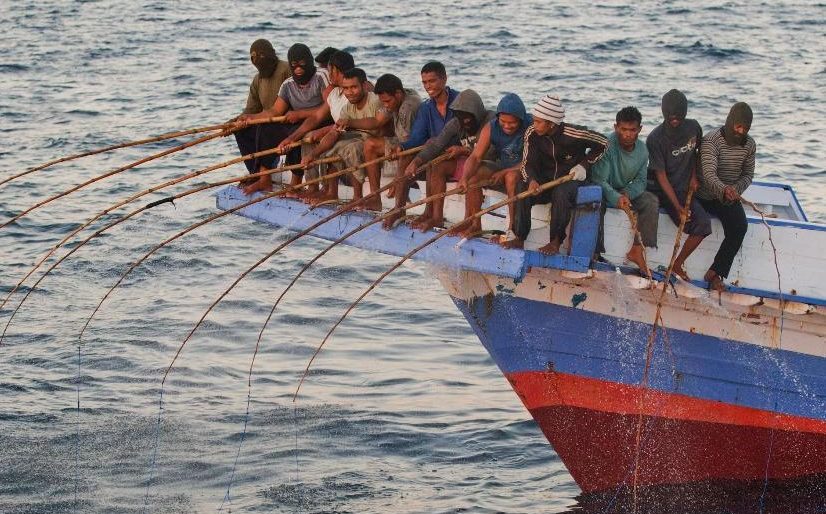
Historically, the fisheries sector was the major source of employment and foreign exchange earnings. In 1995, fisheries products accounted for almost 74% of the value of the Maldivian export. More than half of the total fish catch was exported; in fresh, frozen and canned form (47%), dried (34%) and in other forms (19%). The main importing countries include EU, Sri Lanka and Southeast Asian countries.
In April 2018, Thailand represented half of total exports during the month. Other major markets included Germany, England, United States of America and France.
Although the fisheries sector suffered a decline in the past years, the industry has noted an upward trend in exports by the end of 2017. According to the central bank, MMA’s annual report, volume of fish exports registered a 55 percent growth in annual terms and amounted to 72,000 metric tons.
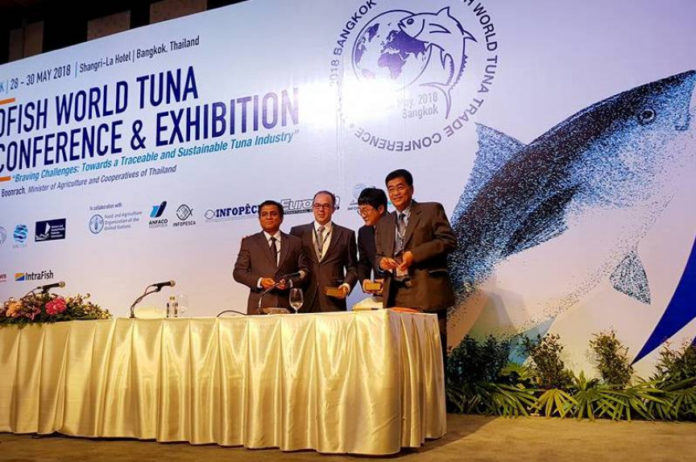
Maldives fisheries companies continues to expand its markets and reach out to potential ones by exhibiting at global food expos, including the Brussels Seafood Expo which included MIFCO, Horizon Fisheries, Ensis Fisheries, Cyprea Marine Foods, Ocean Hunter, Big fish and Maldive Marine Products as participants of the Expo. In addition to the seafood expo, Maldives is represented at the INFOFISH World Tuna Conference, where CEO of government run MIFCO urged not to compare products of Maldives to that of other countries, expressing that the products exported in the Maldives are environmentally friendly and respects the sustainable fishing practices used in the country.
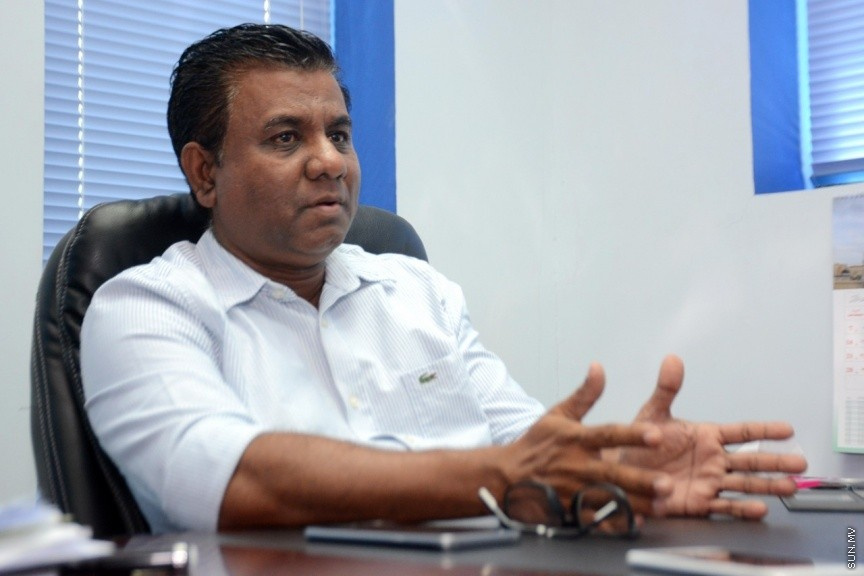
Needless to say, the government’s involvement in the fishing sector has proven to be a continuing contributing factor in the development of the industry. With the introduction of Maldives Industrial Fishing Corporation (MIFCO) in 1993, more regulations were set forth to standardize the industry and to ensure that the products were of the best quality. MIFCO has been awarded the MSC certification for its sustainable pole and line fishery. The government run company aims towards providing sustainable products all its markets, while forcing competitors to follow its path.
It is not only MIFCO that believes in using sustainable practices. Euro Global believes that to be truly sustainable, we need to secure a long-term future existence for both people and planet. One of the leading yellowfin tuna exporters in the country, Euro Global has their own yellowfin tuna processing factory approved by the EU. Adhering to the nationwide fishing method of pole-and-line, Euro Global exports its processed tuna to USA, UK, Canada, EU countries as well as Scandinavian countries.
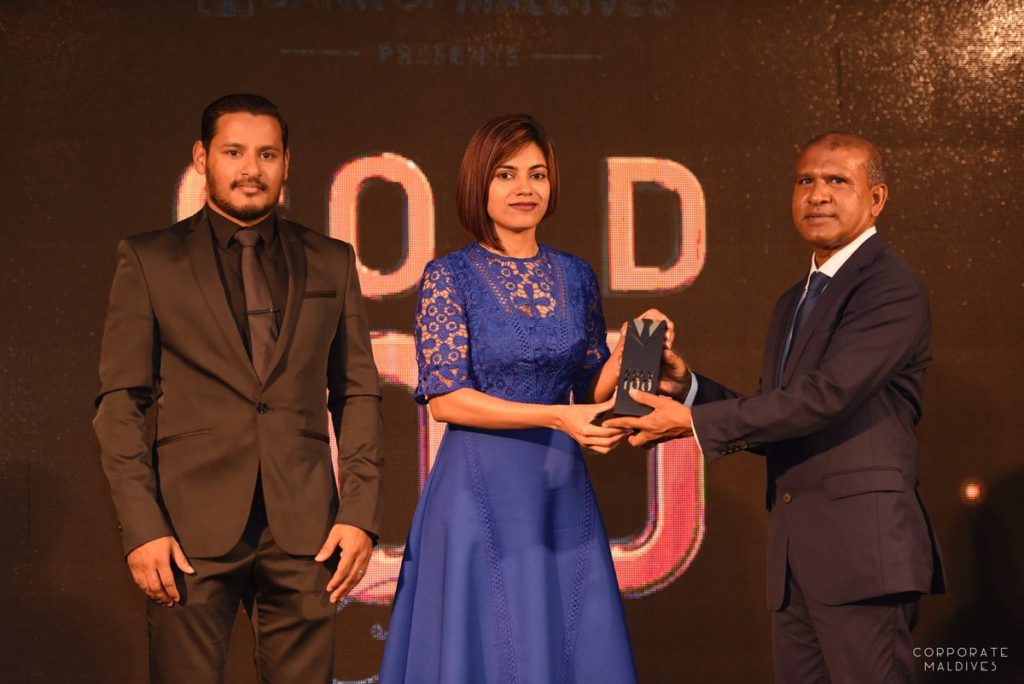
Established in 2002, Ensis Fisheries Pvt Ltd is too, a believer in sustainable fishing practices. The company ensures that the fish exported or sold by Ensis Fisheries were caught solely using the pole-and-line method. Their top quality yellowfin and skipjack tunas have secured them a firm market in Europe as well as North America, which are two of the major export markets for Maldives. In addition to ensuring that the company is in line with the sustainability procedures, Ensis Fisheries has provided their support to the local fishing community, to secure long term sustainable developments throughout the industry. Ice plants and fish collection facilities have been established by Ensis Fisheries in the North and South parts of the country to develop tuna fishery.
Despite the decline in the catch of fish, the fishing industry has not wavered from the strict regulations set forth by authoritative bodies. The sustainability of the industry remains to be at the top of the priority list for all fisheries companies.


